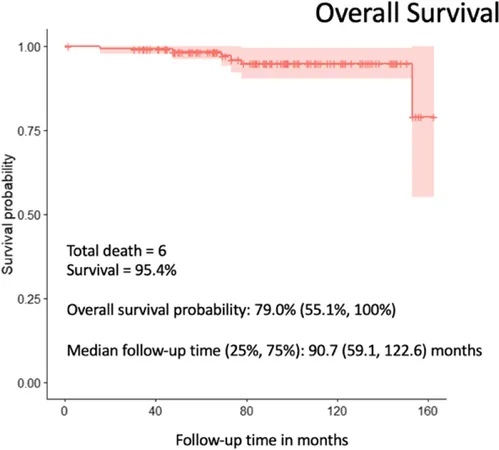
A Decade of Hope: Turkey’s Revolutionary Mammography Screening Program Yields Remarkable Survival Rates in Breast Cancer Patients
2025-01-04
Author: Yu
Introduction
In a groundbreaking move for women's health, Turkey has successfully implemented its first population-based mammography screening program (BMSP) in Bahçeşehir, Istanbul. This pioneering initiative not only demonstrates the viability of such programs in low- and middle-income countries but also offers promising long-term results for breast cancer detection and survival analysis among participants. Recent findings indicate that early detection, made possible through committed screening efforts, can significantly reduce breast cancer mortality rates.
Study Overview
The Bahçeşehir BMSP was operational from 2009 to 2019, targeting women aged 40 to 69. Over this decade, a total of 8,825 women were screened, revealing 146 cases of breast cancer—a detection rate of 1.7%. With a median age at diagnosis of 52.9 years, the program found that the risk of breast cancer increased significantly in women aged 50 and above. This correlation emphasizes the critical need for regular screening as part of a proactive health strategy.
Key Findings
1. **Demographics and Risk Factors**: Women who participated in the BMSP exhibited significant differences in breast cancer risk based on various factors. The study revealed that the likelihood of developing breast cancer increased with breast density and age. The findings also suggested that having more children may lower the risk of breast cancer.
2. **Survival Rates**: Breast cancer patients in the program had a remarkable 10-year survival rate of 85%. For those with ductal carcinoma in situ (DCIS), survival rates reached an impressive 100%. These statistics compare favorably with global survival rates and underscore the program's effectiveness.
3. **Regional Impact**: Unlike many high-income countries where breast cancer detection often occurs in later stages, Turkey's program is shedding light on the need for early detection strategies. The program's success has prompted the Ministry of Health to revise national guidelines, now recommending mammogram screenings beginning at age 40.
4. **Community Engagement**: The program utilized multiple outreach methods such as letters, emails, and phone calls to engage women in screening, achieving a commendable participation rate of 71.7%. This high engagement level is crucial for early intervention, which has been shown to drastically improve outcomes for breast cancer patients.
Conclusion
The Bahçeşehir BMSP illustrates a revolutionary step in public health initiatives within Turkey and draws parallels with successful screening programs in higher-income countries. With robust evidence linking early detection to improved survival rates, the program serves as a model for other low- and middle-income nations seeking to address breast cancer effectively.
A Call to Action
The findings from this study reiterate the urgency for global health professionals to advocate for similar population-based screening programs. With breast cancer being one of the most common cancers among women worldwide, accessible and effective screening measures are imperative. Let’s continue the fight against breast cancer with proactive health initiatives that save lives and promote early diagnosis for all women, regardless of their socioeconomic status. Don’t wait—ensure you and your loved ones are informed about breast cancer screening today!



 Brasil (PT)
Brasil (PT)
 Canada (EN)
Canada (EN)
 Chile (ES)
Chile (ES)
 Česko (CS)
Česko (CS)
 대한민국 (KO)
대한민국 (KO)
 España (ES)
España (ES)
 France (FR)
France (FR)
 Hong Kong (EN)
Hong Kong (EN)
 Italia (IT)
Italia (IT)
 日本 (JA)
日本 (JA)
 Magyarország (HU)
Magyarország (HU)
 Norge (NO)
Norge (NO)
 Polska (PL)
Polska (PL)
 Schweiz (DE)
Schweiz (DE)
 Singapore (EN)
Singapore (EN)
 Sverige (SV)
Sverige (SV)
 Suomi (FI)
Suomi (FI)
 Türkiye (TR)
Türkiye (TR)
 الإمارات العربية المتحدة (AR)
الإمارات العربية المتحدة (AR)